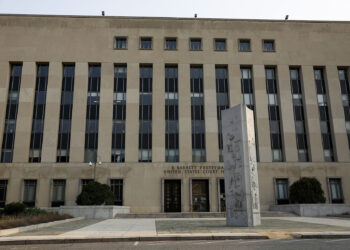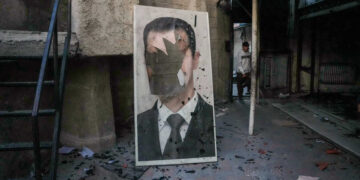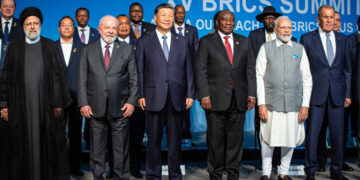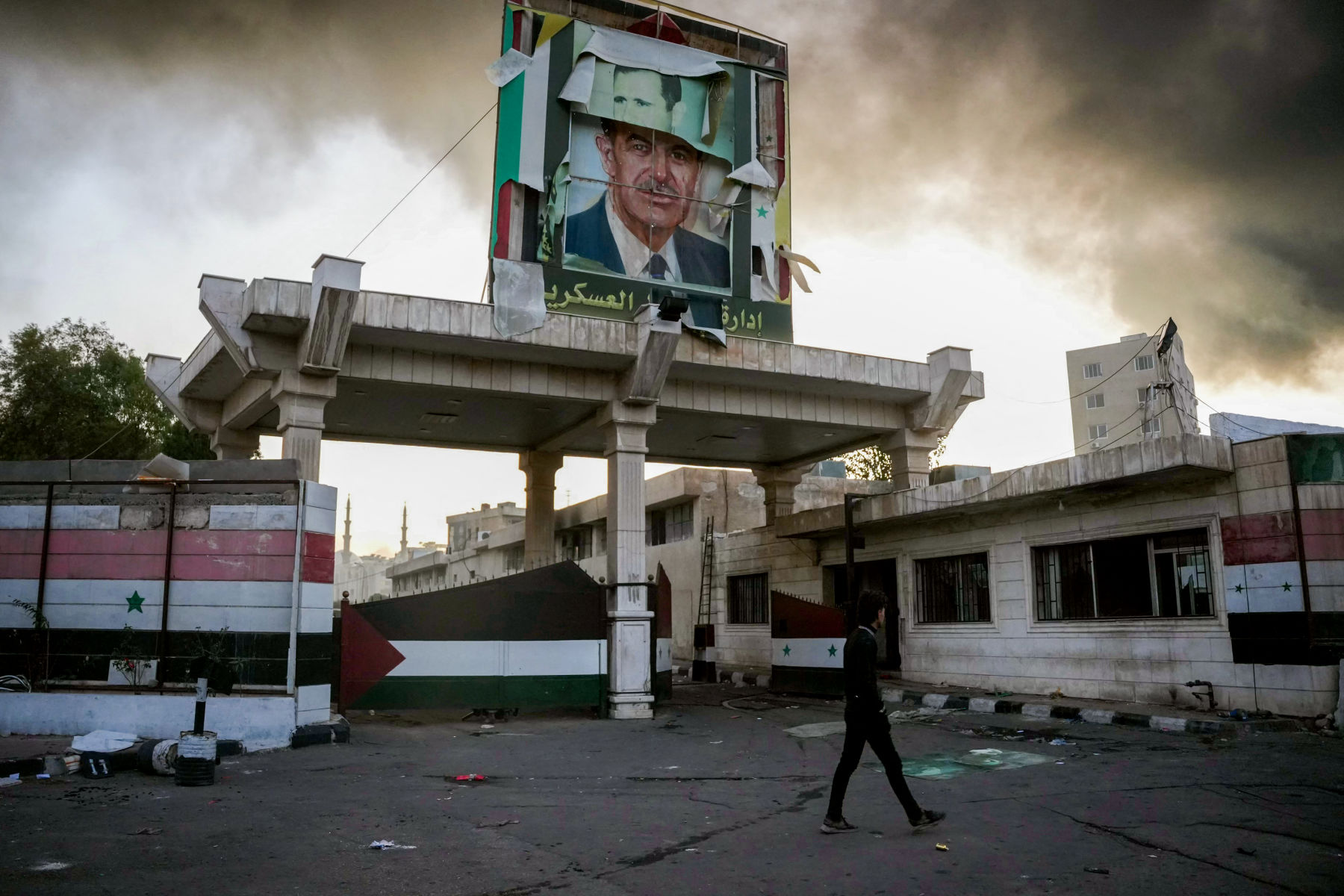Arie Amaya-Akkermans is a writer, art critic and independent researcher based in Italy. His work focuses on the history of archaeology, contemporary art and the politics of memory in the Middle East.
The year was 2015 and the place was the Küçük Mustafa Pașa Hammam, built in 1477 under the reign of Mehmet the Conqueror, in the Fatih district of Istanbul. I was there to interview Wael Shawky, the Egyptian artist, ahead of the opening of the 14th Istanbul Biennial. At the hammam, he was presenting a wildly ambitious film installation, matched with architectural props and sculptures, for the last installment of his trilogy "Cabaret Crusades," inspired by Lebanese writer Amin Maalouf's book The Crusades Through Arab Eyes. Shawky's films tell the story of the First Crusade, started by a call of Pope Urban II in 1095 to conquer the Holy Land, and which ended in defeat against the armies of Saladin a century later.
The third piece in the trilogy, "Secrets of Karbala," is a two-four film, performed not by real actors but rather hand-blown marionettes, adding an element of universal drama that can exist only in myths. Yet the film's plot is everything but fictional. It begins with a scene from the Battle of Karbala, in 680, between Shia and Sunni Muslims, and then moves back to the 12th century of the Crusades. The artist's intention wasn't only to dispel the notion of the Crusades as a clash of civilizations between the West and "others"—the central theme of Maalouf's narrative retelling of the Crusades, which draws on the contemporary accounts of medieval Arab chroniclers to portray the Crusaders' barbarity and give voice and agency to Arabs. Shawky also set out to question the authorship of modern history by adopting the popular format of the puppet theater, which goes back to the Ottoman Karagöz and Hacivat shadow plays. With the puppets, the artist could create a surrealistic atmosphere, blending drama and history, while also critiquing how history itself is told. That extends to the language of the film, spoken only in classical Arabic, even by the Western characters.
The effect was to make us wonder who really controls fate. Although Shawky's film had been shown in some of the world's most prestigious museums—and would soon open at MoMA PS1 in New York, for his first solo exhibition at a major American museum—in Istanbul it hit differently. When I spoke to Shawky, our conversation centered on the vanishing Greek heritage of Istanbul, the long-term violence of displacement, and the possibility of total war in the region, all of which he experienced in Egypt, in his home city of Alexandria. The writing on the wall was there in Istanbul. Turkey was heavily involved in Syria's civil war, supporting armed rebels and hosting millions of Syrian refugees. But hate speech against migrants and refugees, especially Syrians, was brewing, amid a wave of terrorist attacks, from both Kurdish militants and ISIS. Photographer Mathias Depardon, who was there at the hammam that day to photograph Shawky's installation for the Biennial and take portraits of the artist, would be arrested two years later while on assignment in eastern Turkey, accused of "propaganda for a terrorist organization," and deported.

The unexpected connections between Shawky's playful narratives and our uncertain political present are hard to miss.
- Arie Amaya-Akkermans
Nearly nine years later, the unexpected connections between Shawky's playful narratives and our uncertain political present are hard to miss. At this year's 60th Venice Biennial, where he is the sole artist representing Egypt, his latest film also links an event from the past with the vertigo of this era. Titled "Drama 1882," and this time using real actors, it is a filmed version of a musical play that Shawky also wrote and directed, centered on the nationalist Urabi revolt in Egypt from 1879 to 1882. The violent uprising was led by an Egyptian colonel, Ahmed Urabi, against Egypt's ruler or khedive, Tawfik Pasha, who was accused of falling prey to British and French imperial influence.
It is unclear whether the event that was said to spark the Urabi revolt—the killing of an Egyptian makari or donkey-driver in Alexandria by a Maltese man—is true, but at the time there was already a charged political environment in which Egyptians resented the dominance of Europeans and "foreigners." Tawfik Pasha himself was seen as a puppet of European imperialism to many Egyptians, a traitor to foreigners. "The interesting thing about this discourse is the idea of the foreigners—what does it mean to be 'foreigners'?" Shawky asks. "Who were they? They were the occupiers —it was not the idea of immigrants that we have today."

That brings us to the central question of this year's Venice Biennial, officially themed "Foreigners Everywhere." Who is, in fact, a foreigner? On the afternoon of June 11, 1882, riots exploded in the streets of Alexandria and Greek, Maltese and Italian businesses were attacked. It was the beginning of a sad saga that would ultimately end the presence of Greeks and other minorities in the country half a century later. Though seldom discussed today, this event would resonate strongly in the region, as over the following decades firm borders of identity were erected.
It would be easy to understand Shawky's film as a nationalist elegy, but "Drama 1882" in fact confronts us with the fragile foundations of fin de siècle cosmopolitanism in the Mediterranean: Privileges granted unequally, political gerrymandering, and the weaponization of different ethnic and religious communities at the borders of empire. In our precarious present, Shawky speaks with a voice of decolonization that isn't binary or shallow. His work reflects on the cruelty of history without making its course unavoidable, and accepts a degree of cultural complexity that defies easy labels for identity. But it also points a finger in an usually straightforward direction: The desire of imperial projects in the Middle East, whether Ottoman Turkish or Western, to cling onto this anachronistic, idealized past to this day, and one which destroyed communities and created fragile, fatally wounded states from their inception.

Shawky speaks with a voice of decolonization that isn't binary or shallow. His work reflects on the cruelty of history without making its course unavoidable, and accepts a degree of cultural complexity that defies easy labels for identity.
- Arie Amaya-Akkermans
Perhaps it's no surprise here that Amin Maalouf, the source of Shawky's earlier work, is himself a Maronite of Egyptian roots, whose family was forced to leave Egypt for Lebanon in the aftermath of nationalist revolutions that came later. But one of the most crucial aspects of making a film about the Urabi revolt—and which is particularly poignant in the present—is that it wasn't successful. The uprising was crushed by the British, who invaded and bombarded Alexandria and would go on to rule Egypt, directly or indirectly, until 1956. Wael Shawky has spoken often about the Egyptian revolution in 2011 and its eventual failure—yet not as a tale of doom, in spite of the political catastrophe that ensued, but as an unpredictable moment of historical transformation.
A revolution is intense, uncertain and fraught with dangers, but it might as well be unavoidable under certain circumstances, and the pendulum might go in any direction. Today, living in a world so violent, unequal and politically stagnant, unable to imagine a different version of itself, large-scale artistic productions such as Shawky's "Drama 1882," with its opera-like qualities, reactivate grand narratives from the past—not as reminders of political disillusionment, but instead of the continuity, sometimes abandoned, between our present world and the political struggles of the past. That includes the paradoxes, contradictions and failures of previous revolutionary movements. As in the dramas of Shakespeare, the times out of joint cannot be set right any longer.
The theme of the 60th Venice Biennial, "Foreigners Everywhere," perhaps has taken a slightly apolitical route, consistent with the asphyxiation of political messaging in the art world today. But the truth is that we're not foreigners everywhere. There are some places we call home, and others we don't. There are places we have taken from others that have been made homeless. There are places that will never welcome us. In this sea of empty pronouncements by art institutions on the cruel political condition of being the stranger, Wael Shawky's "Drama 1882" is a work almost unsuitable for a national pavilion, since it speaks with the voice of the globally disenfranchised. It reminds us how difficult it is to be foreign, how difficult it is to build a home, how fragile home is, and how easily it can be lost.






































